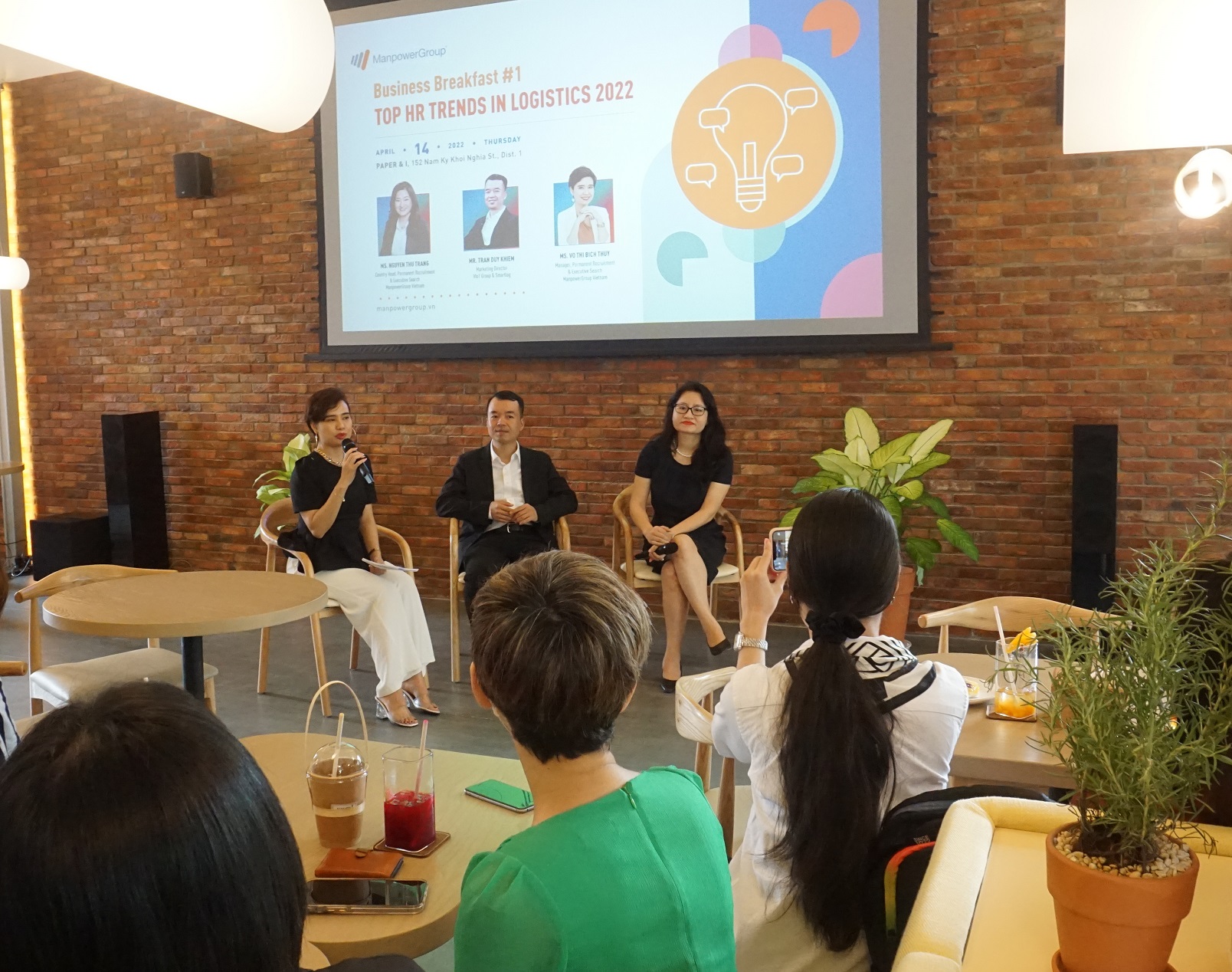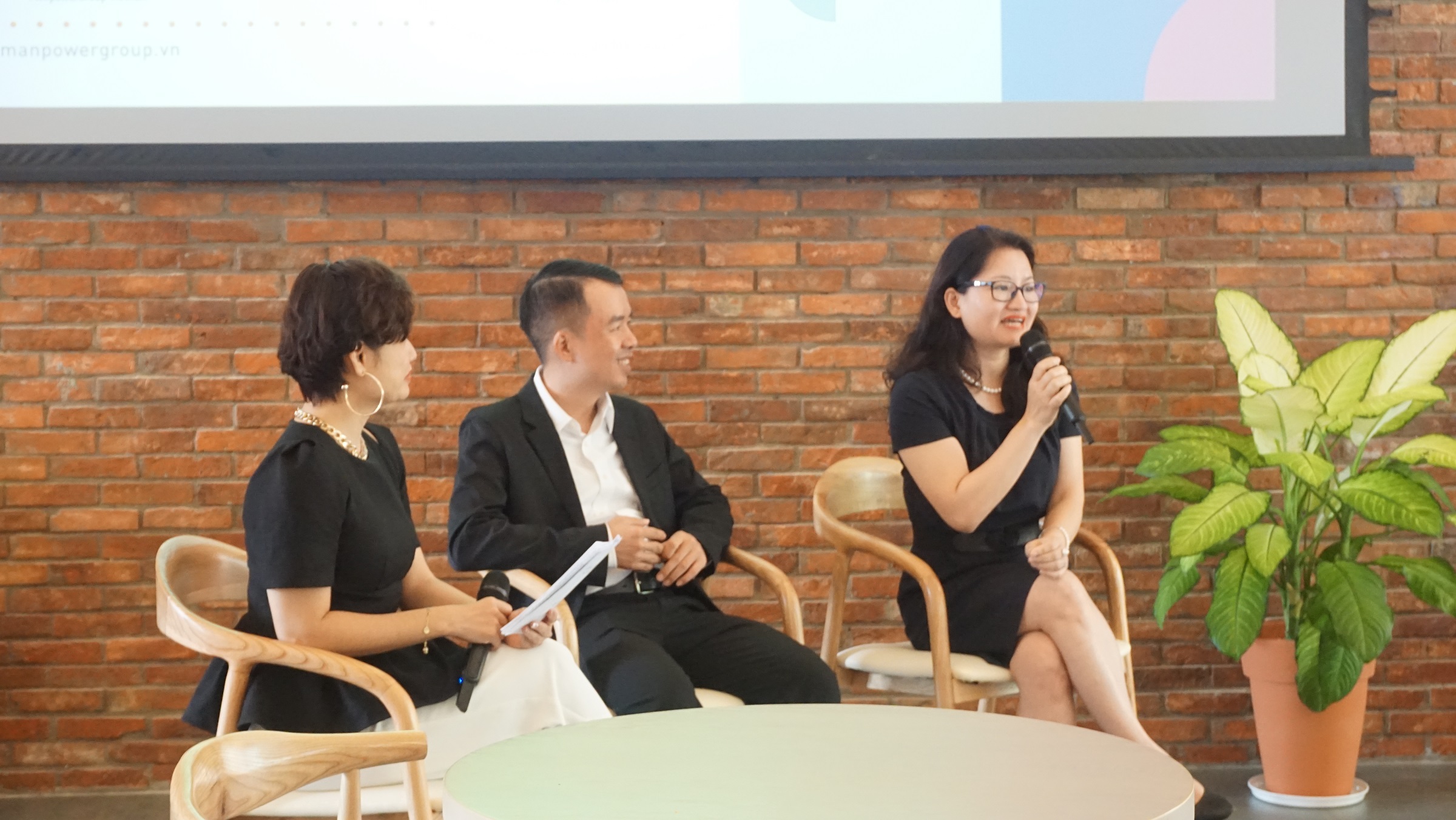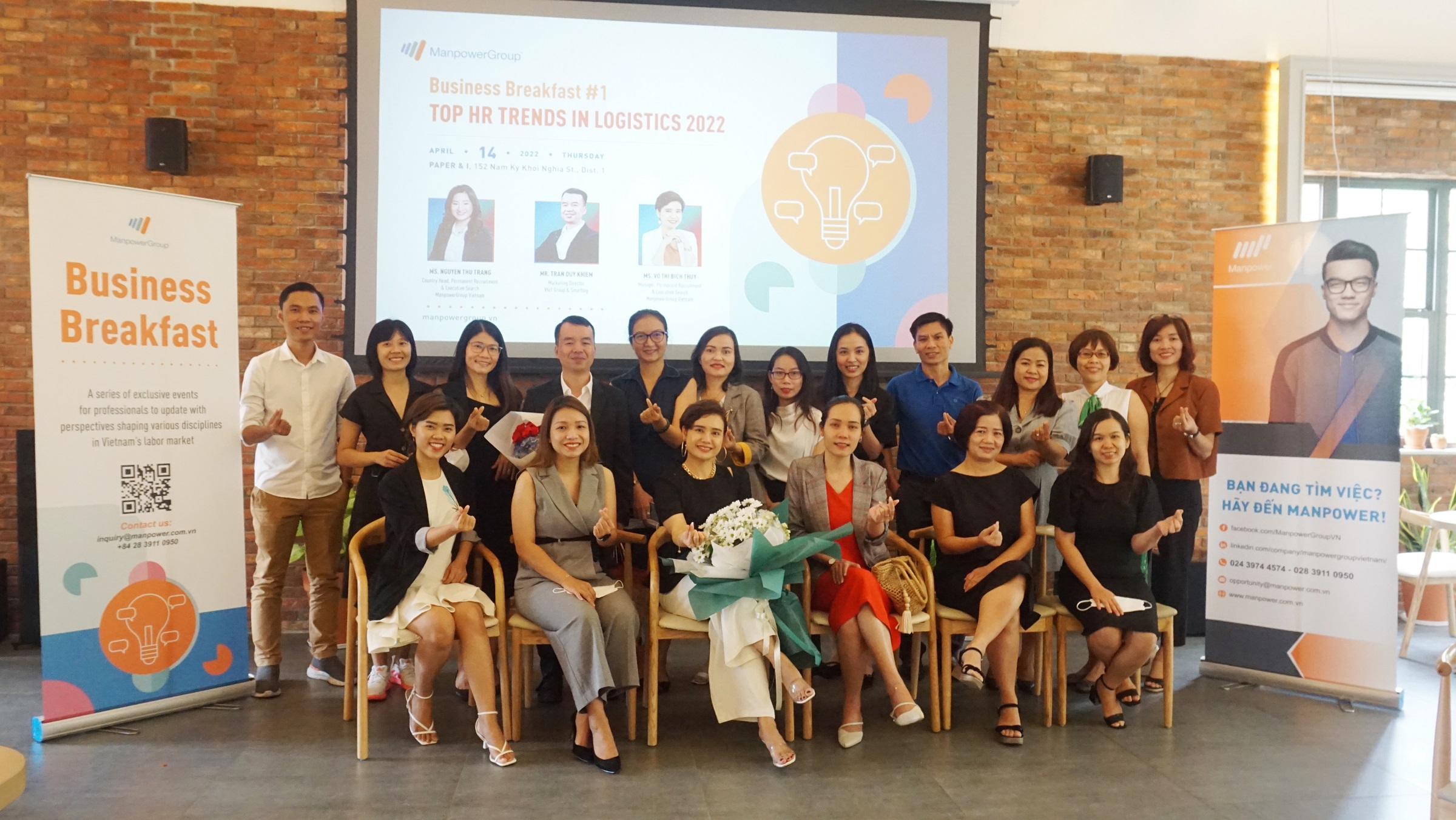On 14th April 2022, ManpowerGroup Vietnam hosted the first event in its Manpower Business Breakfast named “Top HR Trends in Logistics 2022” in Ho Chi Minh city. The event was aimed at discussing top challenges and trends in this dynamic industry in Vietnam and suggesting possible and strategic solutions for HR practitioners to apply in their organizations. Ms. Nguyen Thu Trang, Country Head of Permanent Recruitment & Executive Search, ManpowerGroup Vietnam, who has over 12 years of experience in HR services in Vietnam and Mr. Tran Duy Khiem, Head of Marketing at VioT Group and Smartlog with extensive experience of developing technology startups are key speakers of the event. As an exclusive event for industry professionals, the Business Breakfast #1 saw the participation of nearly 30 HR managers and executives working at logistics and freight forwarding companies.

Ms. Nguyen Thu Trang from ManpowerGroup Vietnam kicked-off the sharing pointing out major workforce challenges that logistics companies in Vietnam are dealing with. “It’s a pity that logistics workers are currently both low in quality and short in quantity. A survey in July 2021 between Vietnam Logistics Business Association (VLA) and Vietnam Logistics Research and Development Institute (VLI) had revealed that 34.8% of jobs were unfilled; 51.1% of fresh-graduates lacked of practical experiences; 58.1% newly hired employees required retraining; 59% of logistics companies had difficulties in hiring post-COVID-19, etc.” Meanwhile, there are approximately over 5,000 logistics companies nationwide with a great growth potential. This poses a gap between the workforce supply and demand which is a real headache for HR managers.
Ms. Trang then discussed the four major HR trends witnessed in logistics globally. Firstly, there is an increase in the demand for contingent workforce in the industry. Secondly, companies are optimizing workforce forecasting to have better planning and management. Thirdly, employers have realized the importance of cross-training in the workplace, which can ensure a smooth workflow process, despite having a few key roles absent. Last but not least, logistics companies are accelerating digitalization meaning that the desired skillset have changed.

In coping with the challenges, Ms. Trang suggested a big focus on workforce’s skills improvement. Particularly, education and training will only be effective when there is a close collaboration between three parties: the Government, educational institutions and employers.
Furthermore, employers should involve a scalable workforce in their organizations by using more temporary and seasonal workers. With huge benefits offered such as satisfying the unstable business demands and saving time and costs, HR solutions providers like ManpowerGroup Vietnam can help companies optimize their HR resources and focus more on strategic management issues.
Mr. Tran Duy Khiem, Head of Marketing at VIoT Group and Smartlog, with over 10 years of experience in logistics shared his further concern about young workforce amid the rapid and spectacular growth of logistics companies in Vietnam. In terms of training, there are few educational organizations in Vietnam offering professional courses in logistics. Also, most of Vietnamese students are quite reactive in learning and staying up-to-date with the market. All of these have resulted in the fact that most fresh graduates are unqualified and require re-training from companies. “This is considered a waste for both sides. While students spend a lot of time, money during their college years, enterprises cannot find the needed talent or have to invest hugely for re-traning after hiring them”, Mr. Khiem said.

The Q&A session became more engaged with speakers and attendees sharing opinions and current practices at their organizations. When asked how to not lose employees to competitors, especially after putting a lot of efforts into training them, Mr. Khiem emphasized that factors like employees’ wellbeing and happiness, good corporate culture, etc. are essential to increasing their commitment and loyalty. Ms. Trang added that besides skills training, companies should put company pride at the centre of their engagement strategy.
Regarding best practices for work assignment and planning to avoid workers’ burnout, especially during peak seasons , Mr Khiem suggested two solutions for HR practitioners. Firstly, logistics companies should be moving to accelerate digitalization (applying logistics software for example) and reduce manual work as an inevitable trend in era 4.0. Secondly, permanent and experienced employees should only be in charge of key roles in the organization while low-skilled tasks can be handled by companies’ interns, temporary and outsourced workers. Some HR managers shared their current practices when dealing with staff’ work overload, one of which include offering overtime compensatory leave.
The 90-minute event received positive feedback from all the attendees. More than sharing thought leadership, we hope Manpower Business Breakfast offer business leaders and HR managers great opportunities of networking and innovative HR/workforce solutions for their organizations.

Stay tuned for our next Manpower Business Breakfast!

